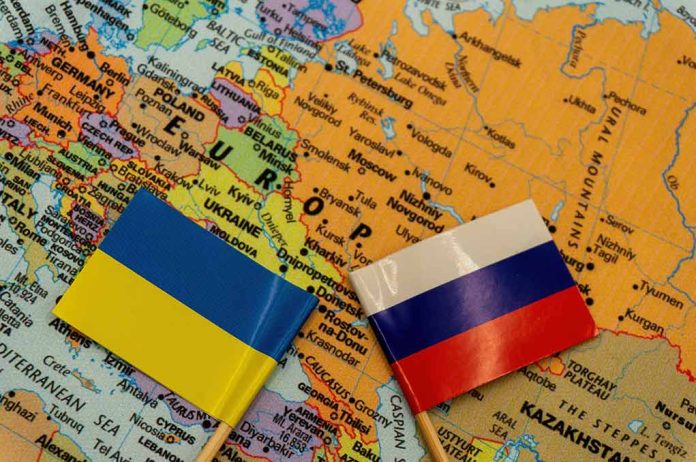
Economic factors in the Ukraine conflict garner attention as Trump highlights the impact of declining oil prices on peace negotiations.
Key Takeaways
- The Kremlin disputes Trump’s claim that oil prices influence its security decisions on Ukraine.
- Russia remains committed to the OPEC+ format while facing economic vulnerabilities due to sanctions.
- Trump believes low oil prices could pressure Russia towards peace, expressing frustration with slow progress.
- Oil dependency makes Russia susceptible to economic shifts, factoring into the conflict’s dynamics.
Trump’s Observations and Kremlin’s Rebuttal
President Donald Trump remarked that lower oil prices might encourage Russia toward a peace agreement with Ukraine. Trump suggested that dwindling petroleum revenues could compel Russian President Vladimir Putin to reconsider ongoing hostilities, hinting at an economic incentive shaping international strategies. However, the Kremlin outright rejected Trump’s assertions, stating that oil prices do not influence Russia’s national security decisions. Dmitry Peskov, Putin’s spokesman, reiterated Russia’s dedication to OPEC+ for stabilizing the oil market.
Despite the dismissals, Russia’s economy leans heavily on oil revenues, exacerbated by Western sanctions limiting its financial transactions. Oil and gas contribute significantly to Russia’s GDP and budget, vulnerable to fluctuating commodity prices. Trump sees these financial levers as potential pressure points to expedite peace talks. A belief persists that enduring economic strain might eventually nudge Russia toward resolution.
The Kremlin says a settlement in Ukraine can't be facilitated by a drop in global oil prices as U.S. President Donald Trump has suggested. https://t.co/6SaiRExZtD
— Local 4 WDIV Detroit (@Local4News) January 24, 2025
Economic Dependence and Diplomatic Leverage
Russia relies on its hydrocarbon sales amidst the international isolation imposed by sanctions. Moscow’s dealings with China offer a lifeline, bypassing punitive measures like the SWIFT exclusion. Meanwhile, global oil market dynamics remain turbulent, with OPEC Basket Price experiencing a steep dive from $100 per barrel in early 2022 to approximately $60 recently. The U.S. influence over OPEC+ due to its security guarantees to key oil producers introduces another dimension to this complex geopolitical arena.
OPEC+’s decision to increase output coincided with Trump’s Middle East trip, sparking speculation about potential strategic alignment. Although Russia officially dismisses the impact of such maneuvers, its economic realities tell a different story. Thus, economic sanctions coupled with fluctuating oil prices paint a precarious picture for Russia, with Trump wielding these circumstances as leverage in peace talks.
Navigating the Path to Peace
Despite ongoing negotiations, a palpable lack of progress raises concerns over achieving a viable ceasefire. Trump emphasized the urgency of advancing discussions, threatening more sanctions unless actionable steps toward peace are realized. Putin’s brief Victory Day truce declaration failed to secure Kyiv’s commitment, with Ukraine demanding a comprehensive ceasefire. Both Trump and Ukraine advocate for direct dialogues, yet Russia insists on unconditional talks, complicating diplomatic efforts.
The intertwining of economic variables and diplomatic endeavors underscores the intricate landscape of the Ukraine conflict. Trump’s perspective highlights how economic fluctuations can reshape geopolitical strategies, providing critical insights for navigating peace on the global stage.


